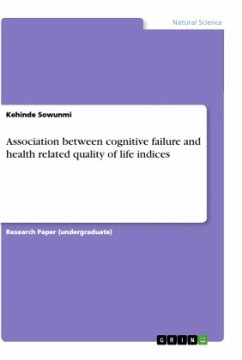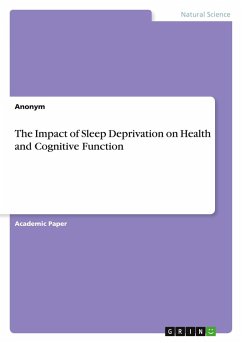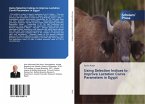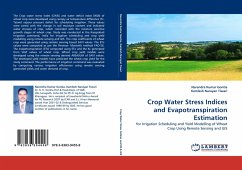Research Paper (undergraduate) from the year 2014 in the subject Biology - Diseases, Health, Nutrition, Tai Solarin University of Education, course: Biology, language: English, abstract: There seems to be epidemiological associations between quality of life and cognitive failure yet, studies determining the relationship between quality of life indices and cognitive failure have been sparse. In addition, no studies examining this relationship have been carried out in Nigerian population. To determine the association between quality of life indices and cognitive failure in a Nigerian sample. A cross-sectional study of 1,338 participants with diverse age groups, ethnicity and socioeconomic levels from three different States and regions in Nigeria recruited from eleven public hospitals between May 2014 and August 2014. Cognitive failure in relation to quality of life domains centring on physical and occupational functioning, perceptions about health status, psychological and social functioning were determined using linear and logistic regressions after adjusting for age, ethnicity, education, gender, marital status, family type, alcohol and smoking status. In the adjusted models, four of the indices for measuring quality of life domains were significantly associated with cognitive failures: worrying about health problems (adjusted odds ratio [AOR], 1.095; 95% CI, 1.05-1.14), health-related impairment in daily activities (AOR, 1.138; 95% CI, 1.09-1.93) and increased hospitalization (AOR, 1.55; 95% CI, 1.24-1.94) were associated with increased cognitive failures whereas showing care for one's health (AOR, 0.93; 95% CI, 0.89-0.96) was associated with decreased levels of cognitive failure. Linear regression analysis on these data recapitulated these results. Quality of life research appears to be vital for health needs assessment of populations and could have profound implications for cognitive failure and other health-related outcome assessment in biology, medicine and health services research.
Bitte wählen Sie Ihr Anliegen aus.
Rechnungen
Retourenschein anfordern
Bestellstatus
Storno








